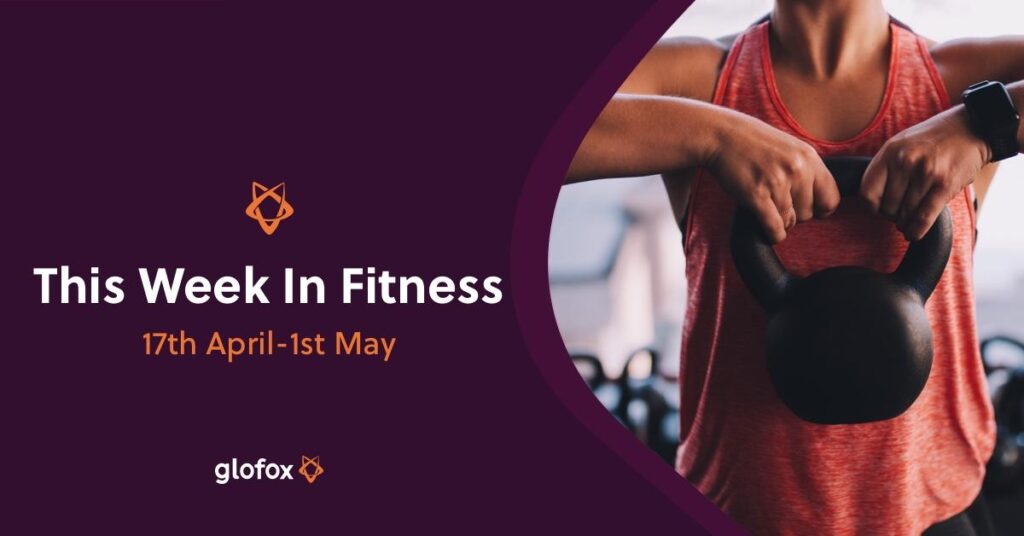Fitness Businesses prepare to reopen following strict guidelines, the transformation of today’s digital fitness trends, and the new landscape that awaits the fitness industry after the pandemic.
Trends in Digital Fitness
The Fitness Industry is Being Disrupted by New Business Models, Digital Delivery and Subscription CommerceThe fitness industry has already been experiencing the massive growth of digital fitness, out-of-studio experiences and connected / social fitness. Notable platforms, such as Peloton, have created enormous awareness, brand recognition and loyal followings. While some fitness platforms offer solutions that were able to fully replace the in-studio experience, they were often supplemental to the studio / gym experience. Consumers still desire physical human interaction but often schedules, travel and other issues impede their ability to get to a physical gym. While in-home fitness equipment and solutions have a long history and reputation as a “laundry rack” or a dusty collection of DVDs on a shelf, today’s new connected offerings provide fitness, training, social interaction, gamification and many forms of engagement for the consumer.
Via Lincoln International. Read full article here.
How Coronavirus Is Changing Our Wellness Habits
Wellness has been a consumer macrotrend for some time, impacting all industries prior to the Covid-19 pandemic, but recent events have brought awareness of health – and even mortality – to the forefront of human consciousness. It means that people are becoming more motivated than ever before to explore new lifestyle behaviours that promise better immunity, stronger bodies and longevity.
Hygiene joins fitness as a top wellness priority.
We all know we should be exercising, eating well, and practising mindfulness, but washing your hands? While it’s something we’ve always done, handwashing is not just becoming a new wellness lifestyle behaviour, but it shoots to the top of the wellness messaging list. Expect people to rank cleanliness and hygiene alongside health, fitness, longevity, resilience and happiness on their list of wellness goals.
Via Mandarin Oriental. Read full article here.
Snap Fitness Signs Master Deal for Japan
Though the Tokyo Olympics were postponed to 2021 and numerous other major events canceled, Japan, as of this writing, hadn’t implemented the types of coronavirus pandemic-related lockdowns that have all but brought economic activity to a standstill in the United States and other parts of the world. And while the world’s third-largest economy is still bracing for a severe blow—and working on massive stimulus measures to counteract the impacts—expansion in the country is a bright spot for Snap Fitness as it grows the footprint for its 24/7 gyms.
Snap Fitness, a sister brand to 9Round and YogaFit under Minnesota-based Lift Brands, signed a master franchise agreement with Global Fitness Japan to develop the concept throughout Japan, starting in the capital of Tokyo.
Via Franchise Times. Read full article here.
After the Pandemic: What Will the European Fitness Sector Look Like?
Club closures, a squeeze on consumer spending and facilitating social distancing within a gym environment are just some of the issues European fitness operators are likely to face once the COVID-19 restrictions begin to lift.
In an article published today (20 April), industry veteran and EuropeActive board member Herman Rutgers outlines the new landscape that awaits the sector, once businesses are allowed to reopen their doors.
Although most European countries are still in lockdown, all are discussing how to restart their economies.
Once restrictions begin to be lifted, it will mean a return to business for fitness operators in most European countries. The exception being Sweden and Finland, where gyms have been allowed to keep their doors open throughout the pandemic.
The article – the third written by Herman Rutgers for EuropeActive’s dedicated COVID-19 webpage – is based on recently published material from analysts such as Deloitte, McKinsey and The Economist, as well as conversations with leading international fitness CEOs.
Via Health Club Management. Read full article here.
Reopening Gyms: Four-Stage Strategy Revealed for UK Fitness Sector
Plans have been revealed for a four-stage strategy to reopen the UK’s physical activity sector, once the government begins to ease the COVID-19 lockdown restrictions.
Published by industry body ukactive, the strategy looks to enable a safe return to business for the thousands of gyms, leisure centres and other facilities, which were forced to close their doors on 20 March.
Via Health Club Management. Read full article here.
Crunch Fitness Franchise CEO Talks Reopening Gyms
Ben Midgley, Crunch Franchise CEO, joins the show to discuss the company’s plans to reopen locations in Georgia as soon as Friday.
Video interview via Chedddar Inc. Watch here.
Xponential CEO Tells Operators: Prepare to Reopen Franchises
The eight boutique concepts, with more than 1,500 locations, under the Xponential Fitness umbrella have a new set of marching orders: get ready to reopen.
“We have our reopening plan already put together and already deployed to the franchisees,” said CEO Anthony Geisler, who added “99.5 percent” of the clubs are closed under government shutdown orders.
“We already began our re-launch,” with operators pre-selling memberships over the phone “just like when we pre-sale a studio prior to construction.” As economies open, most likely region by region, studios will be ready for a “re-grand opening.”
Via Franchise Times. Read full article here.
How Australian Gyms Are Breaking New Ground Online Against Business Crushing Lockdowns
When the federal government closed down gyms last month, Fitstop chief executive Pete Hull was tasked with delivering the bad news to his two dozen franchisees.
“You’re starting from zero – if you had 300 members, you’ve now got 300 leads,” Hull recalls telling his business partners.
Almost immediately after the shutdown order filtered through the airwaves, major banks and other financial institutions began freezing direct debit bills across the industry, preventing gyms, yoga studios and fitness centres from charging their clients for services they could no longer provide.
“It was right for them to do it … there’s a lot of businesses out there that probably would have let their memberships run a little bit,” Hull tells SmartCompany.
The payments freeze was an unprecedented move, but then again so was the shutdown and the COVID-19 pandemic that forced the government’s hand in the first place.















